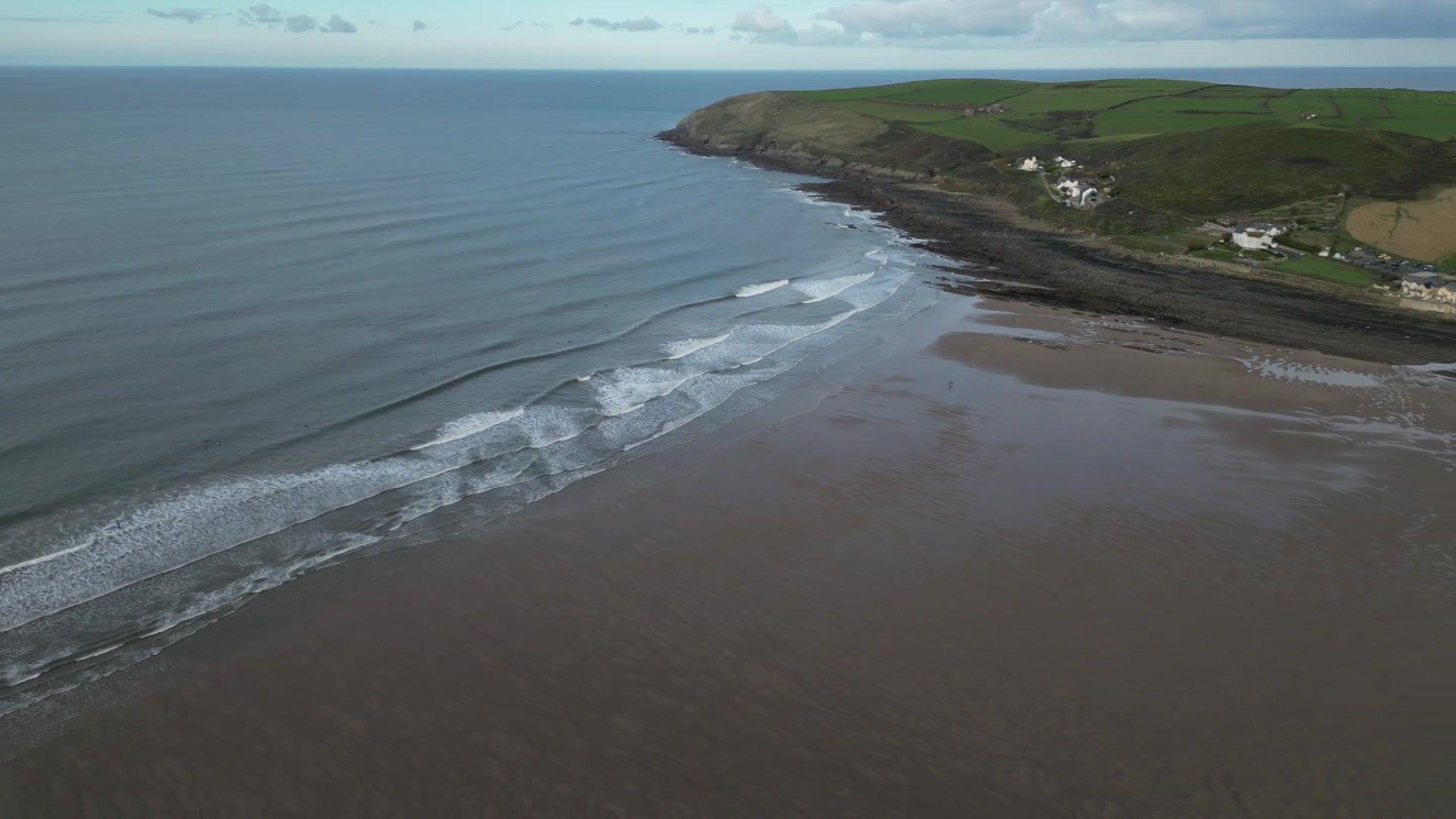Gallery turned into court for climate exhibition
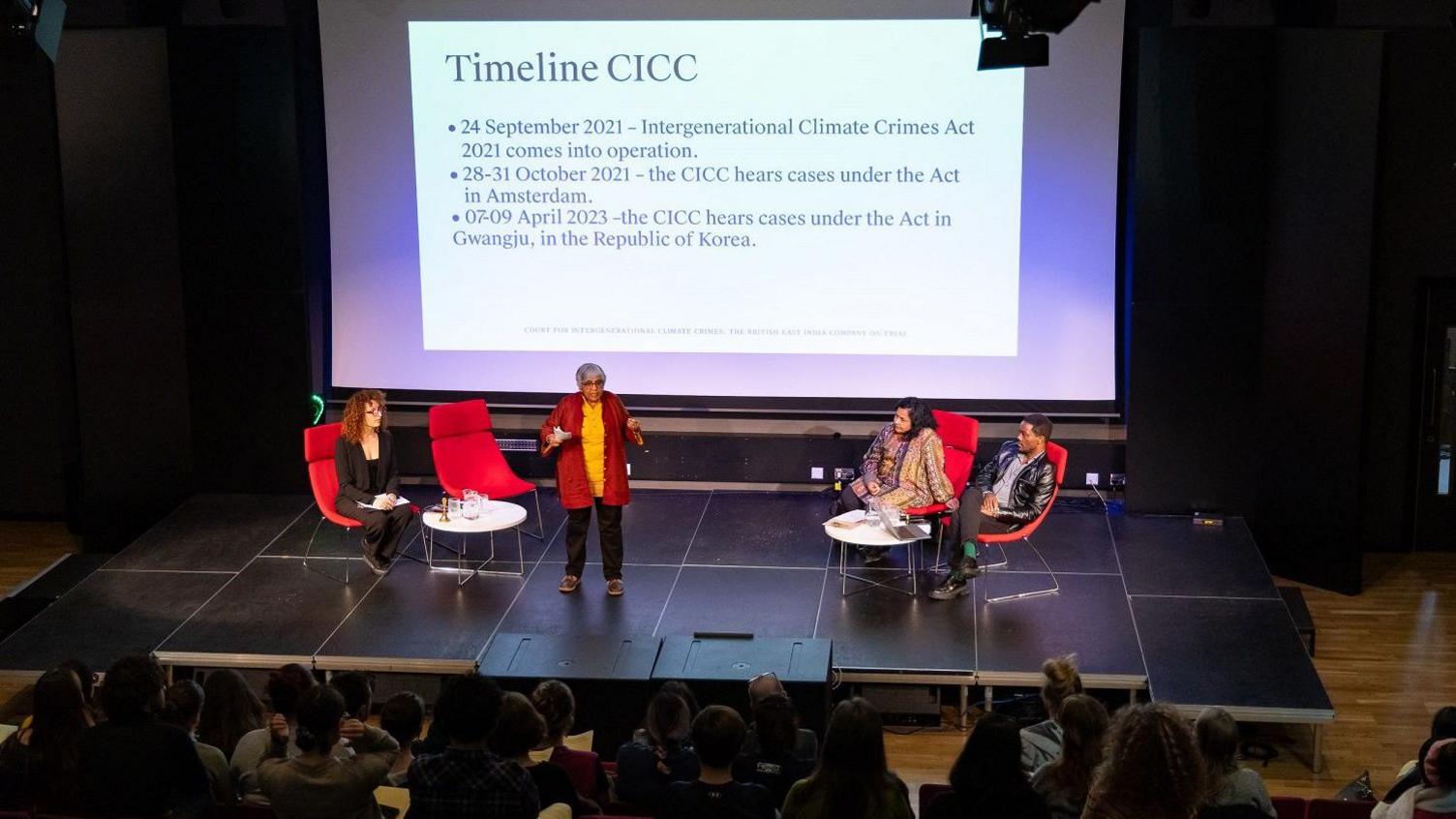
The public were invited to be members of the jury in the court
- Published
A gallery has been transformed into a court room as artists put the former British East India Company on "trial" for alleged, historic climate crimes.
It is the first time the immersive exhibition, Court for Intergenerational Climate Crimes, has been staged in the UK outside of London.
Created by academic, writer and lawyer Radha D'Souza and artist and researcher Jonas Staal, the installation opened at Leeds Arts University's Blenheim Walk Gallery on Friday.
Curator Marianna Tsionki said it was a "brilliant opportunity" and offered a different artistic experience to the city's other galleries.
Founded in 1600, the British East India Company started as a trading business but became a powerful force that shaped the history of India and the British Empire.
The exhibition, which was commissioned by the Serpentine Galleries in London, focuses on the environmental fallout of the company's activities up until its dissolution in 1874.
Ms Tsionki said: "It's our core focus to raise questions within the university, not only for the benefit of our student and academic community, but for the benefit of the city.
"The uniqueness of the Blenheim Walk Gallery relies on this idea of operating within an academic environment, but not isolated from the rest of the cultural production of the city."
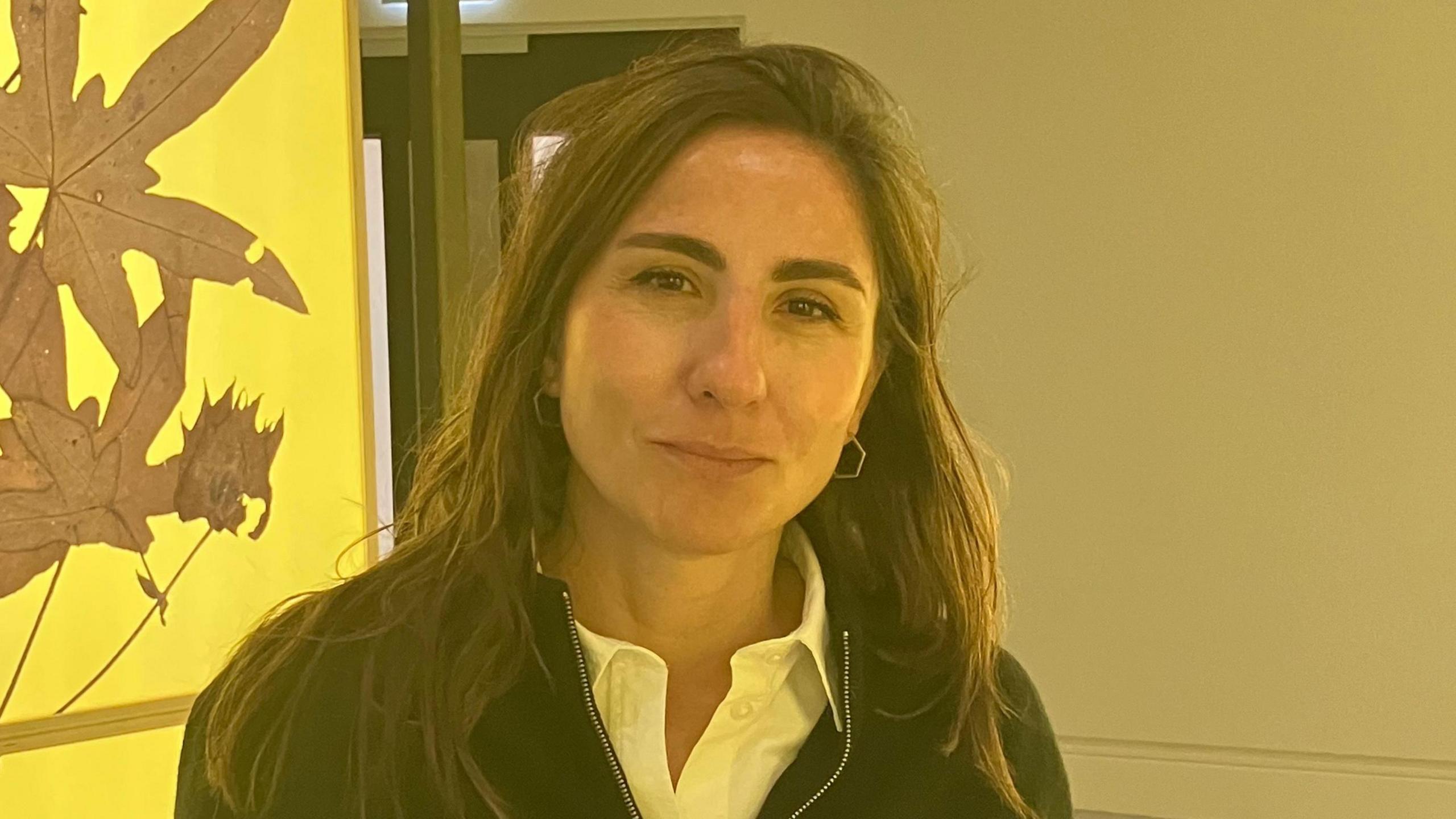
Curator Marianna Tsionki said the exhibition was a great opportunity for the Leeds gallery
On Friday, audience members had the opportunity to take part in the tribunal as jury members.
As well as the live public hearing, the exhibition includes a recording reviewing the evidence of the public hearings in London earlier this year.
Ms Tsionki said: "Even if audiences don't get a chance to engage, to participate in the public hearing, they still get a sense of how those two elements work together and complement each other.
"What is really important is this historical connection. And also making a point that the climate crisis is not isolated from previous decisions."
The exhibition, which runs until 31 January, also includes lightboxes displaying plants linked to the East India Company's operations.
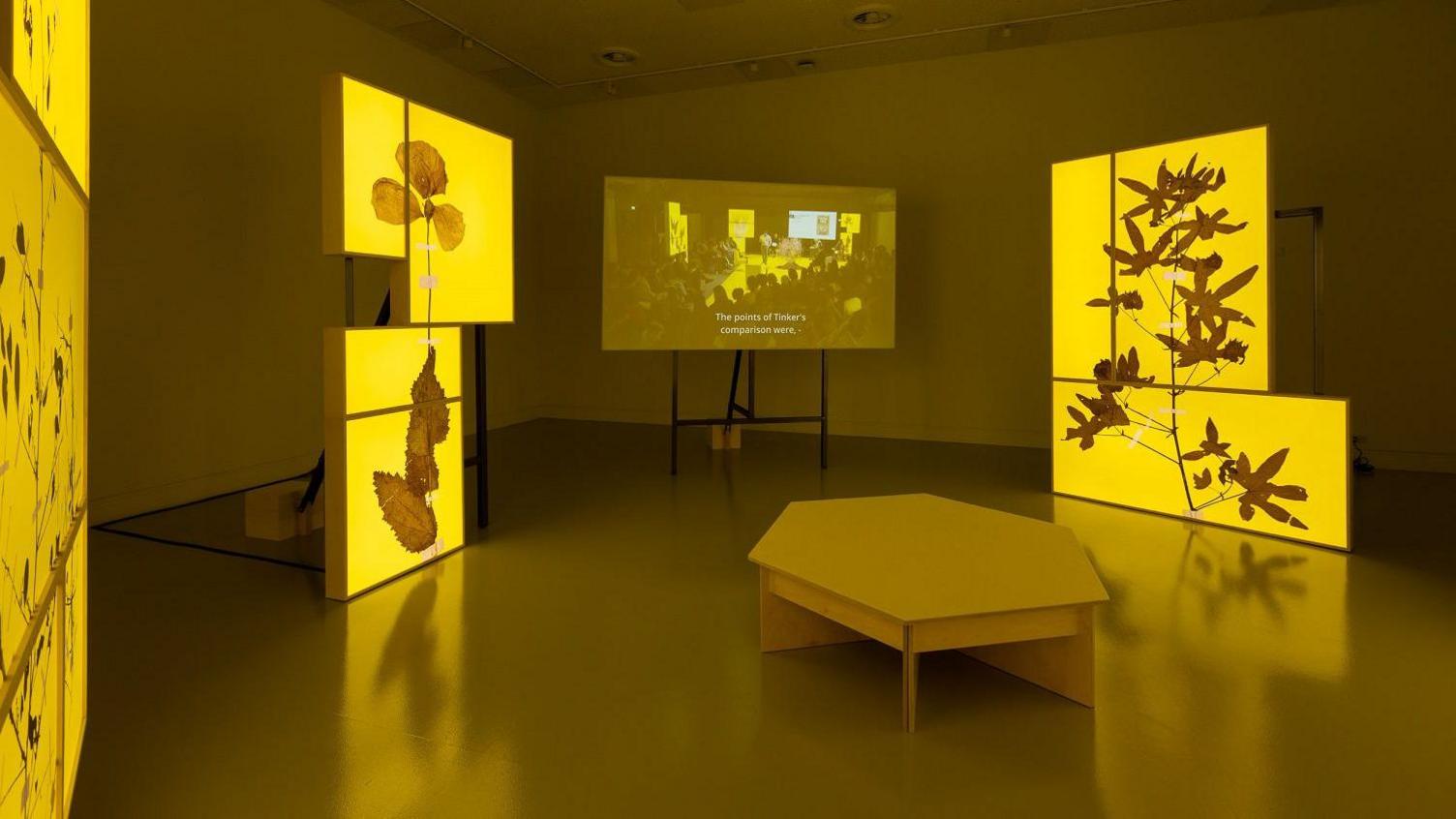
The exhibition includes plants such as jute, cotton and opium
Get in touch
Tell us which stories we should cover in Yorkshire
Listen to highlights from West Yorkshire on BBC Sounds, catch up with the latest episode of Look North.
More stories like this
- Published29 October
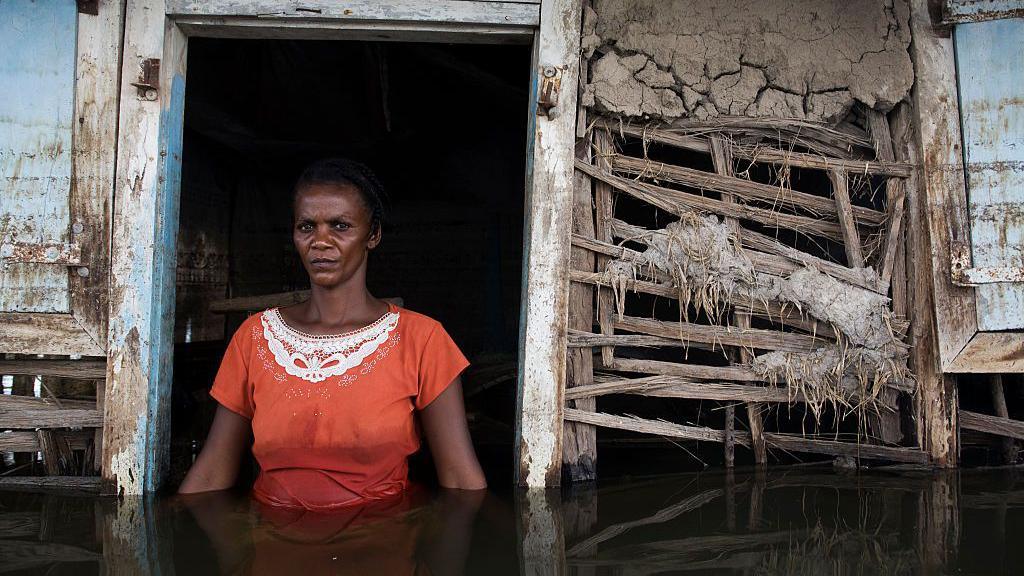
- Published11 October
